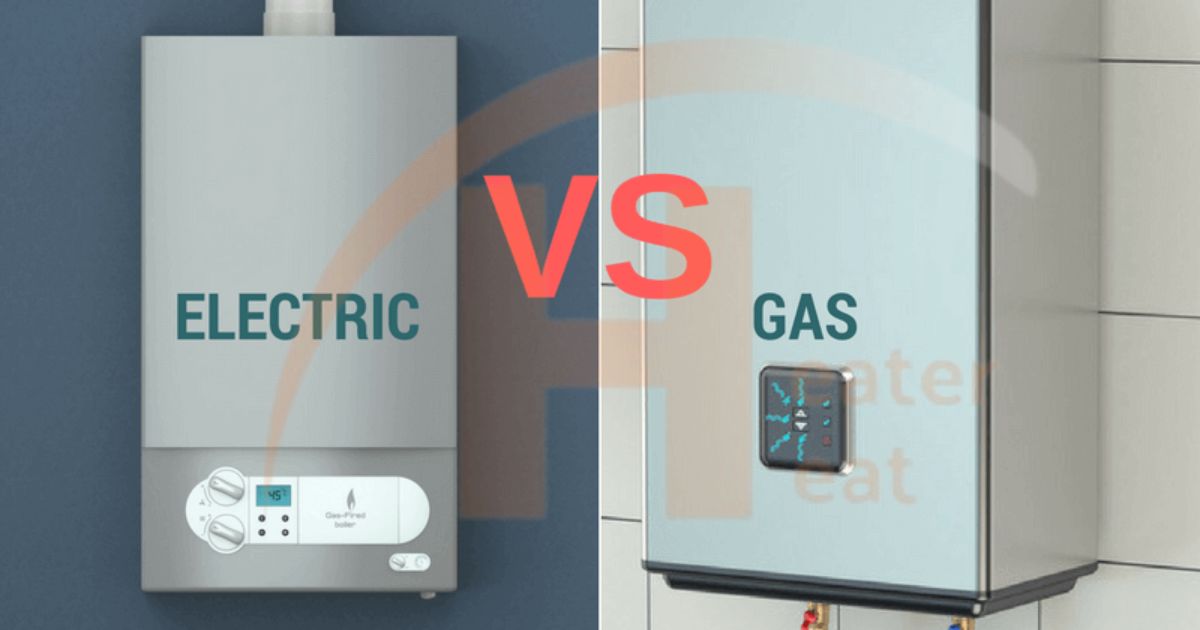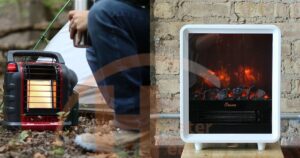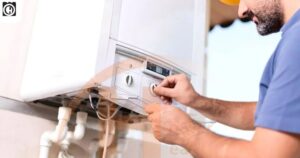Electric water heaters use electricity to heat water on demand offering energy efficiency but may have higher operational costs. Gas water heaters rely on natural gas or propane, providing faster heating and cost savings but may require venting and a larger upfront investment.
Embark on the choice between electric vs gas tankless water heaters, where efficiency meets speed. Curious about rapid heating and cost efficiency? Gas alternatives might steal the spotlight. Find the perfect balance between comfort and economy as you explore the realm of on-demand hot water.
When it comes to water heaters, electric models offer efficient and eco-friendly heating using electricity. On the other hand, gas tankless heaters provide faster hot water and potential cost savings, relying on natural gas or propane. Choosing between the two often boils down to balancing energy efficiency and speed of heating against initial costs and installation considerations.
What is a Tankless Water Heater?

A tankless water heater is an appliance designed to provide water whenever you need it without the requirement of having a storage tank. Unlike water heaters that store and continuously heat an amount of water, tankless heaters heat the water directly as it passes through the device.
These small devices are known for being energy-saving. When you turn on the water tap cold water flows through the heating element of the unit quickly reaching your desired temperature. They do not help reduce energy consumption. Promote environmental friendliness but also offer the convenience of having a constant supply of hot water without any limitations imposed by a storage tank.
Maintenance of a Tankless Water Heater
To maintain a tankless water heater and ensure proper water heater clearance, regularly flush the system to remove mineral deposits that can accumulate over time. This helps ensure efficient operation and extends the lifespan of the unit. Check for any leaks or signs of corrosion, and clean the inlet screen to prevent clogs and maintain optimal performance.
Routine inspection of the gas lines is crucial for safety and it’s essential to follow the manufacturer’s guidelines for descaling or flushing the unit. Regular maintenance not only keeps your water heater running smoothly but also contributes to energy savings and a reliable supply of hot water.
Advantages of a Tankless Water Heater
- Provides a continuous supply of hot water on demand.
- Lower energy usage contributes to a reduced carbon footprint.
- Delivers hot water almost instantly, eliminating long wait times.
- Allows users to easily control and adjust the water temperature.
- Requires less maintenance compared to traditional water heaters.
- Lower energy consumption leads to potential cost savings over time.
- Generally has a longer lifespan compared to traditional water heaters.
- Operates only when hot water is needed, reducing standby energy losses.
- Often equipped with safety features like temperature sensors and shut-off valves.
- Compact size saves space compared to traditional water heaters with storage tanks.
Disadvantages of a Tankless Water Heater
- Interruptions in the power or gas supply can disrupt the functionality of the unit.
- Retrofitting a tankless system into an existing home can be challenging and costly.
- Occasional temperature fluctuations may result in a momentary burst of cold water.
- Upgrading electrical systems may be necessary for certain electric tankless models.
- Despite generally requiring less maintenance, issues like mineral buildup may still occur.
What is an Electric Water Heater?
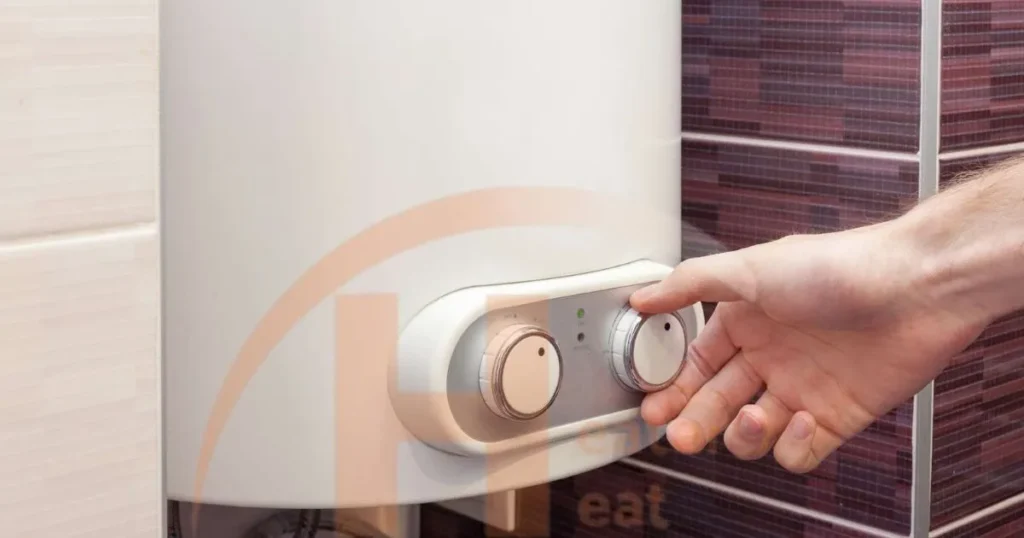
An electric tankless water heater is a household appliance that uses electricity to heat water for various purposes. It consists of a tank, heating elements, a thermostat, and insulation. The tank holds and stores the water while the heating elements powered by electricity, warm the water to the desired temperature.
One advantage of electric water heaters is their ease of installation and accessibility. They are typically more straightforward to set up compared to other types of water heaters. Electric water heaters are efficient in delivering hot water on demand making them a popular choice for households looking for a reliable and convenient solution for their hot water needs.
Maintenance of an Electric Water Heater
Maintaining an electric tankless water heater is crucial for its longevity and optimal performance. Check for leaks around the tank and connections as even a small leak can lead to significant damage over time. Inspecting the pressure relief valve annually ensures it functions properly, releasing excess pressure to prevent potential hazards.
Flushing the tank once a year helps remove sediment buildup, enhancing the heater’s efficiency and preventing corrosion. Keep the thermostat at a reasonable temperature to save energy and avoid excessive wear on the heating elements. Periodic inspections of the heating elements for signs of corrosion or scaling can help address issues early on, ensuring your electric water heater continues to provide reliable hot water for your daily needs.
Advantages of an Electric Water Heater
- Can be highly efficient, saving on electricity costs.
- Provides hot water instantaneously when needed.
- Allows precise control over the water temperature.
- Often more affordable upfront and easier to maintain.
- Takes up less space, suitable for smaller living areas.
- Operates quietly, minimizing disturbance in the home.
- Simple setup compared to other types of water heaters.
- Equipped with safety measures like pressure relief valves.
- Requires less maintenance compared to some alternatives.
- Properly maintained electric water heaters can have a long life.
Disadvantages of an Electric Water Heater
- Dependency on a consistent electricity supply.
- Slower heating rate than gas-powered models.
- Limited capacity for simultaneous hot water use.
- Higher operating costs compared to gas heaters.
- Potential environmental impact based on electricity sources.
What is a Gas Water Heater?
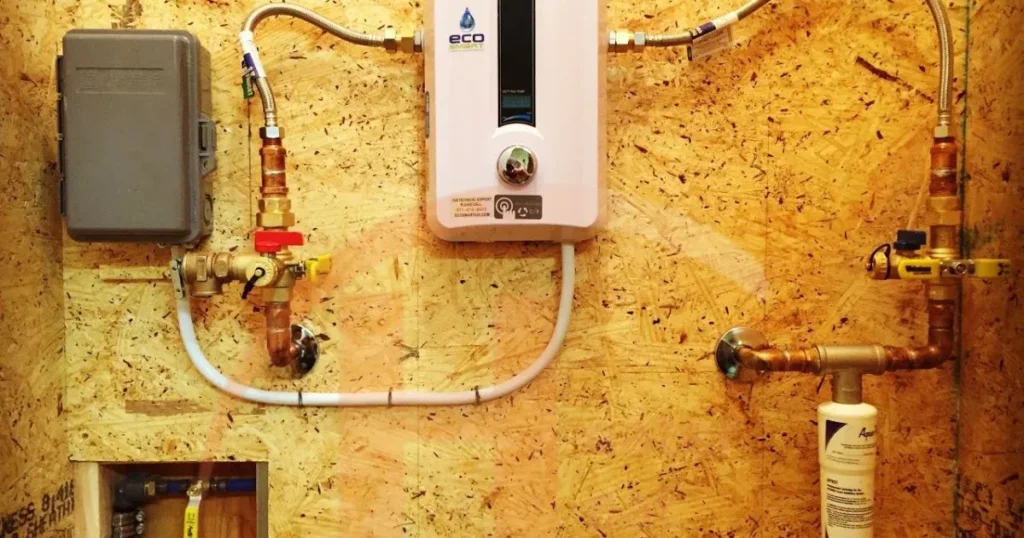
A gas tankless water heater is a home appliance that uses natural gas or propane to heat water for various household purposes. It typically consists of a tank storing water and a burner assembly that heats the water when needed. The combustion process in the burner produces hot gasses that transfer their heat to the water providing a constant supply of hot water for showers, washing dishes, and other daily activities.
These tankless water heaters are known for their efficiency and quick recovery times ensuring a steady flow of hot water. Installation usually involves connecting the unit to a gas line and venting system. Gas water heaters are a popular choice for many homes due to their reliability and cost-effectiveness offering a convenient solution for meeting the hot water needs of a household.
Maintenance of the Gas Water Heater
Regular gas water heater maintenance is crucial for ensuring its optimal performance and longevity. One essential task is flushing the tank to remove sediment buildup which can impede efficiency and lead to overheating. Checking the pilot light and burner for proper ignition and a blue flame ensures efficient heating.
Inspecting the gas connections and burner assembly for any signs of leaks or corrosion is a key safety measure in gas water heater maintenance. Annually testing the pressure relief valve helps prevent excess pressure and prolongs the unit’s life. Routine maintenance not only enhances the heater’s efficiency but also reduces the risk of malfunctions and ensures a reliable supply of hot water in your home.
Advantages of the Gas Water Heater
- Easy control over water temperature settings.
- Natural gas burns cleaner than other fossil fuels.
- Gas heaters tend to have lower operational expenses.
- With proper maintenance, they can last for many years.
- Gas heaters provide hot water faster than electric ones.
- Gas is often cheaper than electricity, reducing energy bills.
- They can work with existing gas lines, simplifying installation.
- They have better recovery rates, supplying hot water consistently.
- They come in various sizes and are suitable for different household needs.
- Gas heaters work even during power outages, ensuring hot water availability.
Disadvantages of the Gas Water Heater
- Gas heaters need well-ventilated spaces.
- Gas heaters demand more than electric models initially.
- Potential carbon monoxide dangers necessitate strict safety.
- Installation complexity and placement constraints due to ventilation.
- Older gas units may need to catch up on newer electrics in efficiency, impacting costs.
Difference Between Electric and Gas Tankless Water Heaters
| Feature | Electric Tankless Water Heaters | Gas Tankless Water Heaters |
|---|---|---|
| Energy Efficiency | Generally more efficient | Efficient but may vary |
| Heating Speed | Slower heating | Faster heating for larger demand |
| Installation Ease | Easy installation | Requires infrastructure like venting |
| Upfront Cost | Lower upfront cost | Higher upfront cost |
Electric water heaters run on electricity heat water using elements and offer easier installation and maintenance. While gas water heaters use natural gas or propane delivering higher flow rates and efficiency for larger households.
Electric Tankless Water Heaters
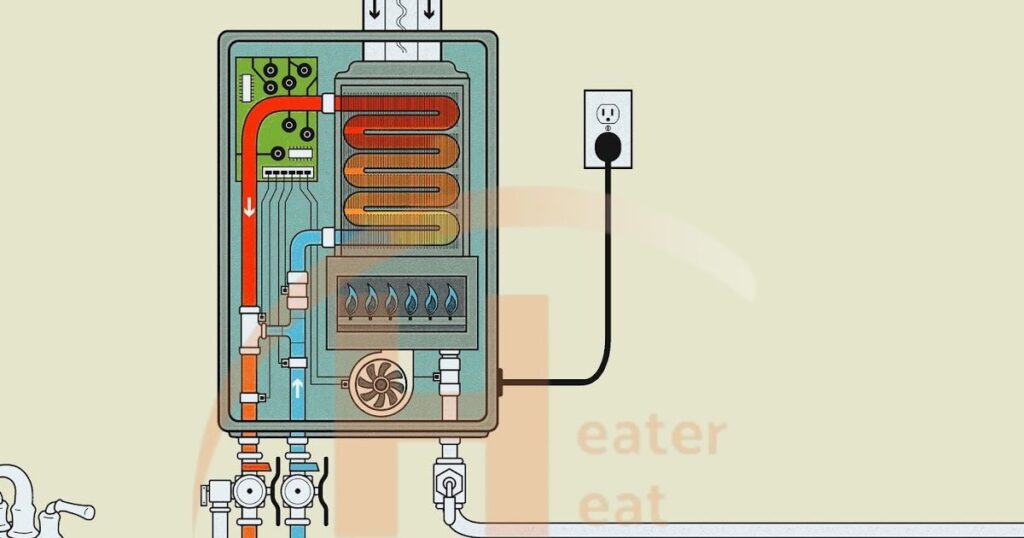
Electric tankless water heaters use electricity to heat water on demand without the need for a storage tank. These systems use heating elements to quickly warm the water as it passes through the unit. They are typically easier to install and require less maintenance compared to gas tankless heaters. They may struggle with high-demand scenarios which can lead to higher energy costs in areas with expensive electricity rates.
One significant advantage of electric water heaters is their compact size making them suitable for smaller living spaces or point-of-use units in specific areas like bathrooms or kitchens. They are also known for having a longer lifespan compared to gas alternatives due to fewer moving parts. They may not provide the same level of efficiency in heating water at higher flow rates.
Gas Tankless Water Heaters
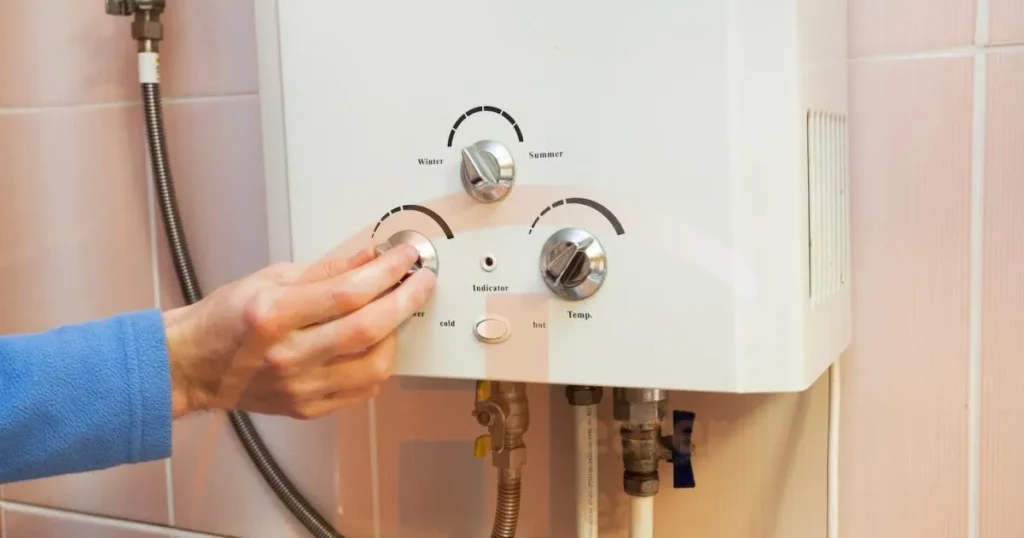
Gas tankless water heaters utilize natural gas or propane to heat water instantly delivering a continuous supply without the need for a storage tank. These units offer high water flow rates making them ideal for larger households or places with higher hot water demand. They generally have lower operating costs in areas where natural gas is more affordable than electricity.
One key advantage of gas water heaters is their ability to handle higher volumes of water flow without compromising temperature consistency. They are more complex to install due to venting requirements and need regular maintenance to ensure proper combustion and safety. Gas tankless heaters also tend to have a slightly shorter lifespan compared to their electric counterparts due to the nature of their components and regular wear and tear.
How Do Electric and Gas Water Heaters Heat Water?
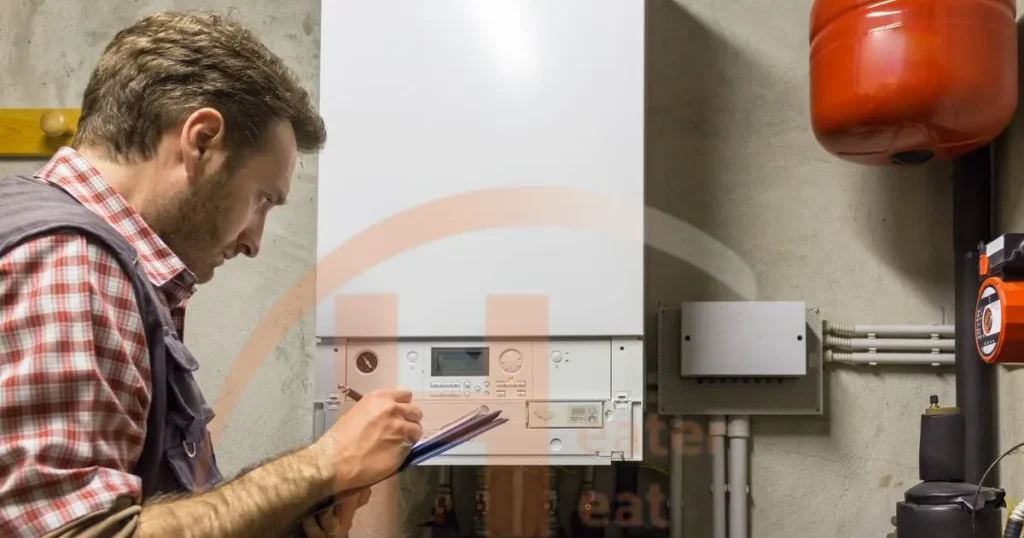
Electric tankless water heaters heat water using electric coils. When hot water is needed, cold water flows through the unit and the electric coils heat it instantly. This on-demand process eliminates the need for a storage tank making electric water heaters energy-efficient and space-saving.
Gas water heaters use a gas burner to heat the water. When hot water is required, the gas burner ignites and heats the water as it flows through the unit. Gas water heaters are known for their quick response and continuous hot water supply. Both electric and gas water heaters offer efficient solutions for meeting hot water demands. Each system uses its unique method to provide hot water without the need for a bulky storage tank.
Which one is more efficient
The efficiency of electric vs gas tankless water heaters depends on factors such as energy costs and usage patterns. Electric tankless heaters are often more efficient in converting energy to heat but they might have higher operating costs in regions with expensive electricity.
Gas water heaters are generally more cost-effective to operate in areas with lower gas prices and may have slightly lower efficiency in converting energy. The choice between them depends on your local utility rates and the specific demands of your household. Both electric and gas water heaters offer efficient solutions tailored to different preferences and circumstances.
Which Produces More Hot Water
The production of hot water in electric vs gas tankless water heaters depends on their respective power capacities. Electric tankless heaters are typically available in a range of sizes and larger units with higher power ratings can produce more hot water simultaneously.
Gas water heaters known for their higher flow rates are often capable of producing more hot water than electric units. The specific needs of your household and the demand for hot water during peak usage times will influence the choice between electric and gas water heaters based on their capacities to meet requirements.
Cost Comparison Between Electric vs Gas Tankless Water Heaters
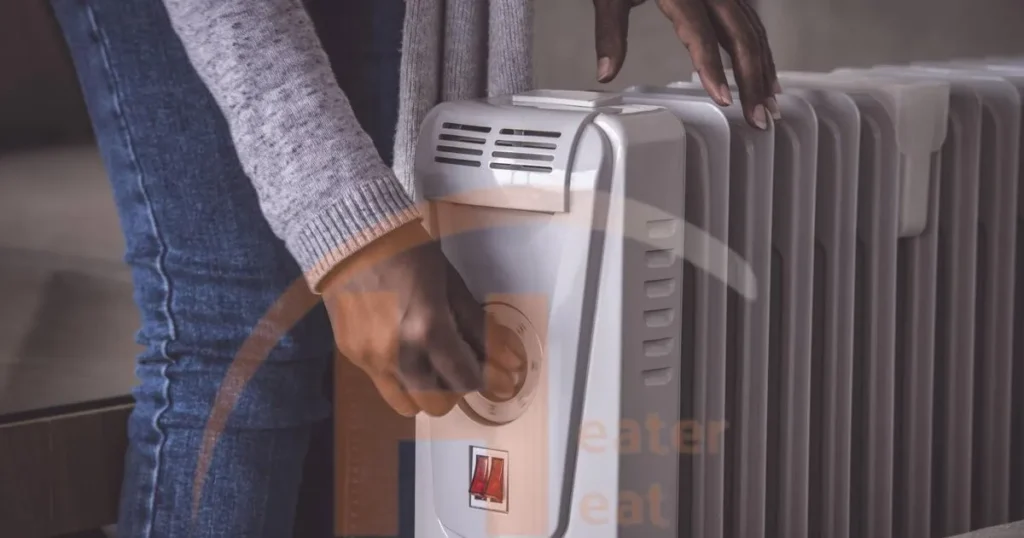
Maintenance costs also play a role in the overall comparison. Electric water heaters
typically require less maintenance due to their simpler design resulting in lower ongoing expenses. Gas units may need more regular check-ups and occasional professional servicing. The ultimate choice between electric and gas water heaters depends on individual preferences and the specific needs of the household.
Initial Cost
The initial cost of electric water heaters may be higher than traditional tank models, but the potential for long-term energy savings and reduced utility bills often justifies the investment. The ease of installation and lower maintenance requirements make electric tankless heaters an attractive and cost-effective choice over time.
Opting for a gas water heater involves a higher initial cost compared to conventional tank models. The advantages of lower energy bills and increased energy efficiency make them a financially sound choice in the long run. Gas water heaters prove to be a worthwhile investment for those seeking a dependable water heating solution.
Operating Cost
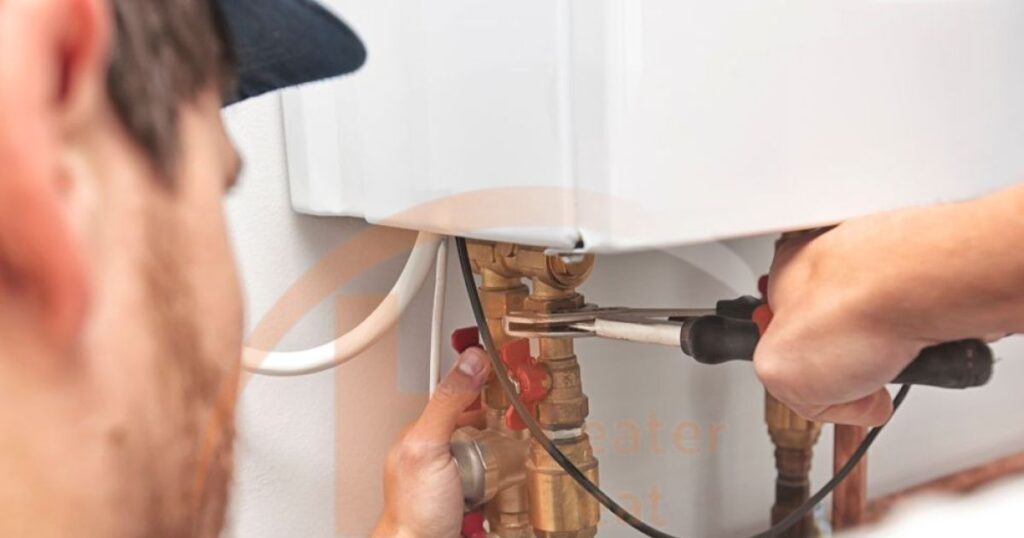
Operating costs for electric water heaters tend to be lower due to their higher energy efficiency. These units only heat water when needed, minimizing energy consumption and resulting in reduced monthly utility bills. making them a great choice in the long run.
Gas water heaters also boast lower operating costs, thanks to their efficient use of natural gas. The heating feature ensures energy is only used when hot water is required contributing to lower overall expenses. It makes gas tankless heaters a financially savvy option over time.
Installation Cost
Installing electric water heaters is generally more straightforward and cost-effective compared to their gas counterparts. These units often require less complex venting systems and can be easily mounted on walls, reducing both installation time and expenses.
Gas water heaters usually involve higher installation costs due to the need for proper venting and gas line adjustments. While the installation may be more intricate, the efficiency and performance benefits of gas units can offset the initial expense, providing a durable and reliable water heating solution in the long term.
Is an Electric or Gas Tankless Water Heater Right for Me?
Deciding between an electric or gas water heater depends on your preferences and home setup. Electric units are often more straightforward to install and suitable for smaller households. Gas models provide higher flow rates and are profitable for larger homes with higher hot water demands. Consider your specific needs and available utilities when deciding which type of water heater is right for you.
Availability of Energy Source
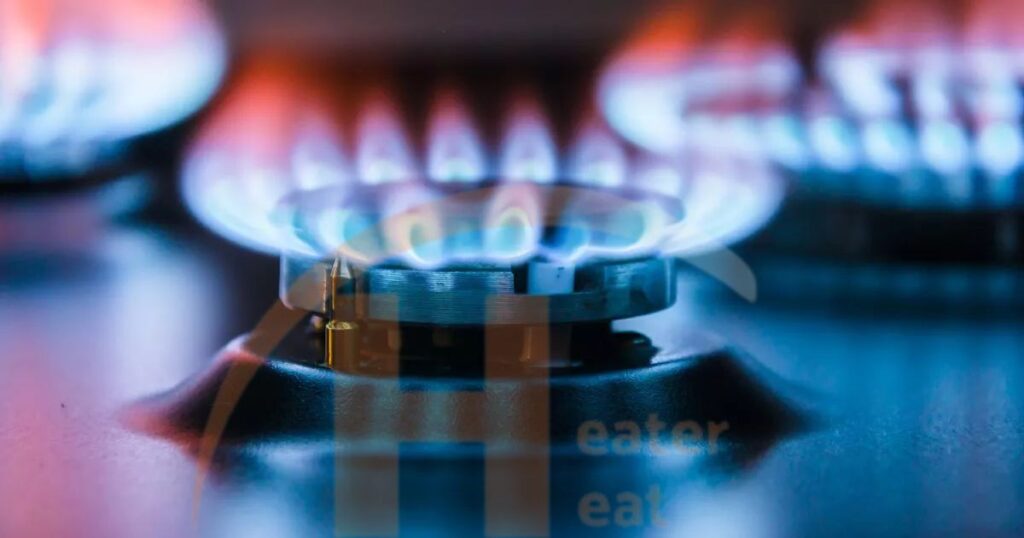
The availability of the energy source is crucial when deciding between an electric or gas water heater. If you have a reliable and stable electrical supply, an electric heater may be a convenient choice offering easier installation and efficiency for smaller households.
In areas with a consistent natural gas supply, a gas water heater may be more suitable for larger homes with higher hot water demands. Always evaluate the availability of your energy source to make an informed decision based on your specific circumstances.
Homeowner Preference
Considering homeowner preferences is another crucial factor in choosing between an electric or gas water heater. Some homeowners prefer the simplicity and ease of installation that electric heaters offer making them a practical choice for smaller households.
Those who value faster heating rates and cost savings over time may lean towards gas water heaters, especially for larger homes with higher hot water demands. Understanding your personal preferences and priorities will help you make the right decision for a water heating system that aligns with your lifestyle.
How to Choose a Tankless Water Heater

Choosing the right water heater for your home involves considering various factors to ensure optimal performance and energy efficiency. From assessing your household’s hot water needs and available installation space to different fuel options, each aspect plays a crucial role in making an informed decision.
Utility Service
Choosing a tankless water heater requires familiarity with utility services which encompass essential provisions like electricity, water, and gas. Identify the energy sources available in your area to determine compatibility with the chosen water heater type whether electric or gas-powered.
For electric water heaters, ensure a reliable electrical supply with the necessary voltage and amperage. Verify that your home’s electrical system can support the unit’s requirements promoting seamless operation and preventing potential issues due to insufficient power.
Household Water Use
When selecting a tankless water heater, it’s vital to evaluate your household’s water consumption patterns. Consider the number of bathrooms, appliances, and simultaneous hot water needs to determine the unit’s flow rate required for efficient performance.
Tailor your water heater choice to match peak demand periods in your household. Understanding the flow rate and temperature rise capabilities ensures the unit can consistently deliver hot water when and where it’s needed, accommodating the specific requirements of your daily activities.
Groundwater Temperature
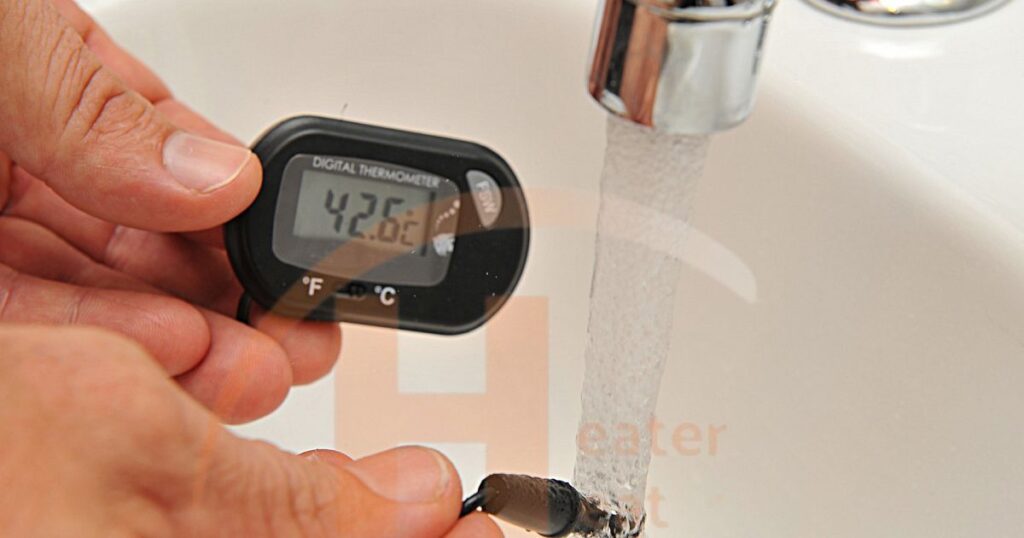
Another crucial factor in selecting a water heater is the groundwater temperature in your location. Colder regions may require a unit with a higher temperature rise capacity to ensure the desired hot water output while warmer areas may find standard models more suitable for efficient performance.
Understanding the temperature rise capabilities of a water heater is essential for maintaining comfort. Choose a unit that can efficiently elevate the incoming groundwater temperature to your desired hot water level, providing a consistent and enjoyable experience throughout the year.
Fuel Source Options
When deciding on a water heater, consider the available fuel sources in your area. Gas-powered models are known for higher flow rates making them suitable for larger households. while Electric units offer energy efficiency and may be preferable for smaller homes.
- Electricity
- Efficient and easy installation
- Suitable for smaller households with lower hot water demands
- Natural Gas
- High flow rates
- Ideal for larger households with higher hot water requirements
- Propane
- Offers flexibility
- Suitable for areas without natural gas access
- Renewable Energy
- Environmentally friendly
- Sustainable and cost-effective operation
- Hybrid Systems
- Versatile and energy-efficient
- Combine electric and gas elements
Conclusion
The choice between electric and gas tankless water heaters boils down to individual preferences and specific needs. Electric models are often more energy-saving and environmentally friendly making them a suitable option for those prioritizing sustainability and ease of installation.
Water heaters tend to offer higher heating capacities, making them ideal for larger households with higher hot water demands. The decision hinges on factors such as energy costs, available infrastructure, and the desired level of efficiency.
Both electric and gas water heaters contribute to energy conservation compared to traditional tank models. Consumers must weigh the upfront costs, long-term savings, and environmental impact to make an informed decision that aligns with their values and household requirements.
Frequently Asked Questions
Are electric water heaters more energy-efficient?
Yes, electric models are generally more energy-efficient with higher efficiency ratings.
Are gas water heaters more expensive upfront?
Yes, gas heaters usually have a higher initial cost due to installation complexities.
Are electric water heaters easier to install?
Yes, electric models are typically easier to install due to simpler requirements.
Do gas water heaters heat water faster?
Yes, gas heaters often provide hotter water more quickly, beneficial for larger households.
Which is more environmentally friendly?
Electric water heaters are considered more eco-friendly, producing fewer emissions.

Mark Edward, with 6 years of expertise in Electric Heaters, is the author at heaterheat.com. His in-depth knowledge provides valuable insights into efficient heating solutions, making him a trusted resource.
